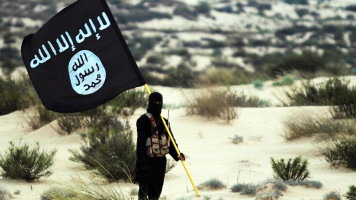'Let it rust': Campaign to boycott purchase of cars launched against high prices in Gaza
Gazan activists launched a digital campaign calling for a boycott on any purchases of cars due to high prices in the besieged coastal enclave.
Under the hashtag "Let it rust", the campaign has become widespread among residents to pressure car merchants to reduce their price tags.
Since the outbreak of the COVID-19 virus two years ago, the markets in Gaza have witnessed a significant increase in prices, particularly the cost of a car.
Some customers accuse dealers of manipulating prices.
New taxes on imported goods in Gaza by Hamas provokes anger from residents, merchantshttps://t.co/ccMD0E01VS
— The New Arab (@The_NewArab) July 20, 2022
Speaking to The New Arab, Mohammed Odeh, an organiser behind the boycotting campaign, pointed out that dozens of cars, especially older models, are displayed in the markets, but the customers cannot afford them.
Hence, Odeh stressed, the boycott campaign's goal is to force a drop in prices. He called on more residents in Gaza to join.
For his part, Abdul Rahman Abdul Ati, from the town of Beit Lahia in the northern Gaza Strip, joined the campaign because "the greed of car merchants prevented many residents from buying cars at reasonable prices."
"Even though Gazans are suffering from poor economic conditions, some greedy traders are trying to take advantage of the residents' need to own a car and exaggeratedly multiply their prices, including old cars," he said.
In the past, Abdul Ati added, the price of a 2008 Kia car was about $US 6,000, but today it costs $US 16,000. "That's a fairy tale," he remarked.
New wave of price increases hits besieged Gaza Striphttps://t.co/WuoBoA9K12
— The New Arab (@The_NewArab) June 7, 2022
Mohammed al-Akhras, a Gaza-based journalist, also joined the campaign. Under the campaign's hashtag, he tweeted, "the dealer imports a Kia Morning 2020 and receives it in Gaza for no more than $US 11,000, while he sells it for $US 18,500. So, I am boycotting the exploitation."
Meanwhile, Ismail al-Nakhala, head of the Car Buyers Association in the Gaza Strip, said to The New Arab that "the rise in car prices came as one of the consequences of the coronavirus outbreak, which negatively affect the costs of goods delivery from the produced countries, which led to a significant increase in global markets."
"There is a decrease in car production globally, which led to an increase in prices. However, prices in Palestine are very high compared to other countries due to high customs prices, which amount to 120% as customs paid to the Palestinians Authority in Ramallah, as well as the taxes we pay to the Hamas-run local authorities," he added.
He expects the global car markets to stabilise within two years.







 Follow the Middle East's top stories in English at The New Arab on Google News
Follow the Middle East's top stories in English at The New Arab on Google News

![Beirut stadium [Getty]](/sites/default/files/styles/image_330x185/public/1235817272.jpeg?h=a5f2f23a&itok=0UZr2fIL)
![Israeli forces destroyed a religious shrine in the village of Shama in southern Lebanon [Getty]](/sites/default/files/styles/image_330x185/public/2184560625.jpeg?h=a5f2f23a&itok=Ge_H4GfP)